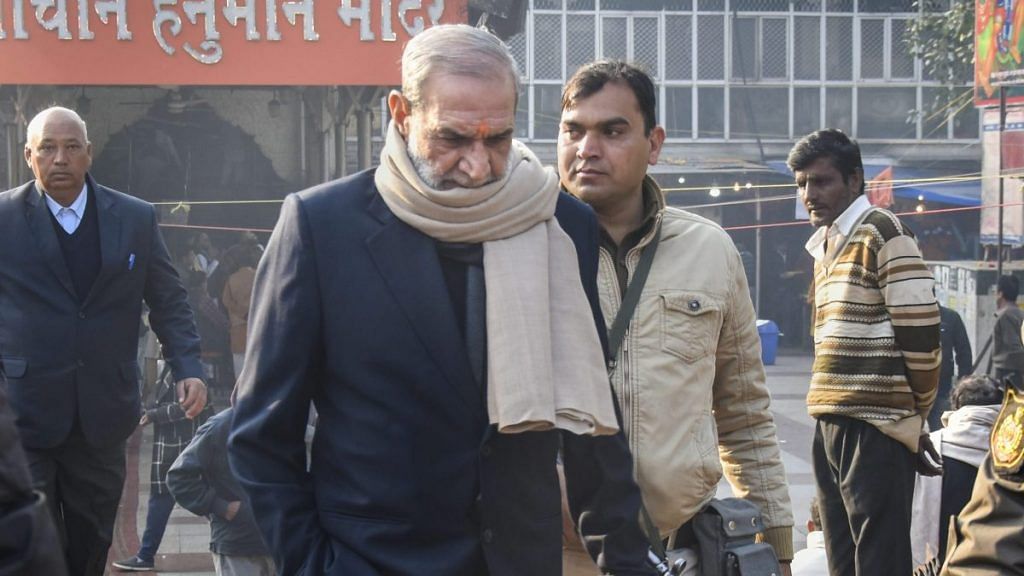Sajjan Kumar, sentenced in ’84 anti-Sikh riots case, has said Delhi HC did not consider that other political parties may have sought to secure his conviction.
New Delhi: Former Congress leader Sajjan Kumar, in his appeal in the Supreme Court, challenging his conviction in the 1984 anti-Sikh riots case, has argued that the Delhi High Court considered several extraneous circumstances, including the fact that he enjoyed political patronage, but failed to consider the possibility that politicians, other political parties and “limelight-seeking” workers may have been interested in securing his conviction.
On 17 December, the Delhi High Court had convicted the former Congress leader for his alleged role in the riots and directed him to surrender by 31 December.
In his appeal, filed Saturday, Kumar submitted that the high court reversed the findings of his earlier acquittal based on the testimonies of the three material witnesses — Jagdish Kaur, Nimrat Kaur and Jagsher Singh — while ignoring major contradictions and inconsistencies.
“It is pertinent to bear in mind that the instant case is a case of shifting goalposts wherein in order to suit their case the respondent and the witnesses have drastically changed their case and statements to such an extent that the nature of the case also changed,” Kumar’s appeal reads.
Also read: Why it took 34 years to convict Sajjan Kumar in 1984 riots case
‘Jagdish did not name me at first’
Kumar suggested that Jagdish Kaur, the prime prosecution witness, did not name him at first. His appeal reads that when Jagdish Kaur made her statements before the Justice Ranganathan Misra Commission in 1985, she named several accused persons and blamed police officials as her perpetrators but did not name him.
“The affidavit is very specific and detailed and yet this earliest statement available on record, which was an affidavit filed and authored by PW1 (Jagdish Kaur) herself does not name the appellant (Kumar) here,” the appeal reads.
Kumar further reasoned that this affidavit was filed 11 months after the incident took place, by which Jagdish Kaur had “sufficient time to reflect and give necessary details”.
Kumar also said that this “critical document” was not disputed till 2008. Even the Justice Nanavati Commission (2005), which recommended filing charges against Kumar, did not make any correction with respect to naming him as an accused, he has added.
Kumar has been convicted in the case pertaining to the murder of five Sikhs in Raj Nagar Part I near South Delhi’s Cantonment area, and burning down a Gurudwara in Raj Nagar Part II.
The riots had been triggered in November 1984, after the Sikh bodyguards of then Prime Minister India Gandhi assassinated her. One of the worst cases of communal violence since the Partition in 1947, the riots in Delhi resulted in the deaths of 2,733 Sikhs. Over a 200 others were murdered across Uttar Pradesh, Haryana, Madhya Pradesh, Maharashtra, and other states.
Also read: After Sajjan Kumar conviction, everyone has become an expert on Sikh trauma
